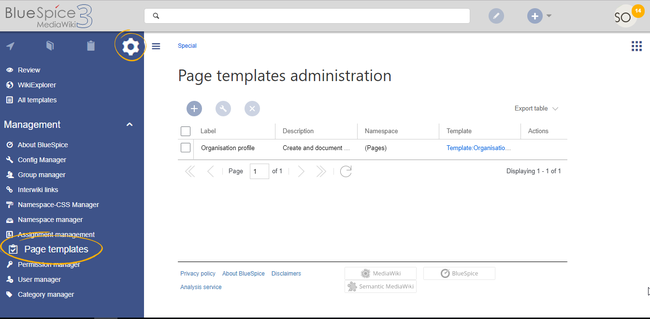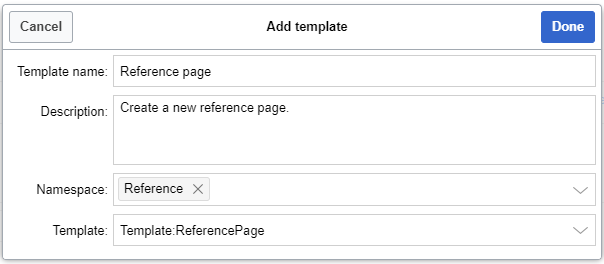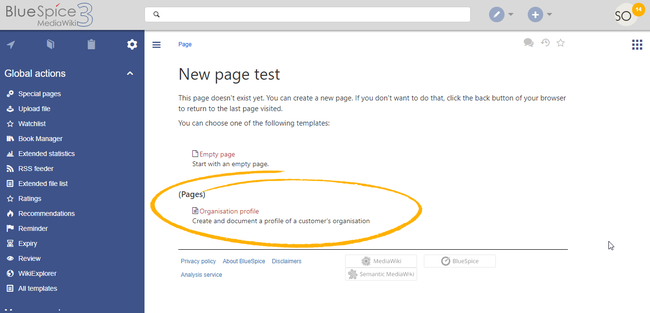Page template
-
- Last edited 5 years ago by Bookmanager
-
-
- No status information
A page template applies a predefined content structure and layout to new pages. That way, certain page types can be applied during page creation to produce consistent sets of related pages.
Contents
Characteristics
Page templates are especially useful for frequently used content formats such as logs, reference pages, product descriptions, or short manuals. When a page is created with a page template, the page becomes "detached" from the original page template. This means that subsequent changes to the template will not affect pages that have originally been created with that page template. This distinguishes page templates from regular templates.
In gerneral, page templates:
- used for new pages only
- can be limited to certain namespaces
- can force a namespace for new pages
- are based on templates in the Template namespaces
- integrate with the extension Page Forms
Creating a page template
Administrators can create new page templates, as well as edit and remove existing ones in the Page templates manager, located under Global actions.
Note: Every page template depends on an actual page in the namespace Template. This template must exist before creating a page template.
A new page template can be created by clicking the "Plus" button above the template list.
Template fields
When creating or editing a page template, the following information needs to be provided:
- Name - the name of the template
- Description - a short description of the template
- Namespace - list of the namespace where the template is active
- Template - page from the Template namespace from which to pull the data
Using page templates
A list of available templates appears when a user creates a new page. It is shown below the "Empty page" default template. Selecting one of these page templates will create the new page that is prefilled with the content that is transcluded from the actual template page.
Configuration
In the Config manager, you can change the following settings:
- Force target namespace:
- Hide default templates: Hides the default Empty page template.


